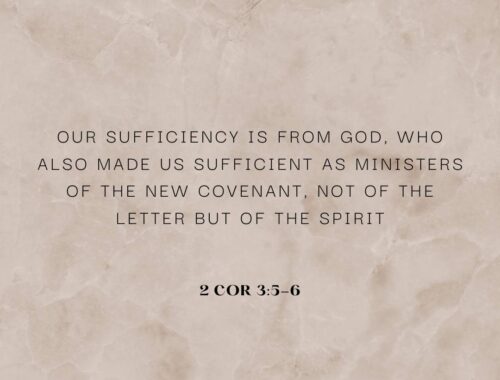2 Corinthians Chapter 8

We used to hear and be encouraged to have the virtue of being sympathetic towards others. To offer others a listening ear, a shoulder to cry on, provide comfort and support in times of need.
In recent times, we may hear more of the word, empathy.
What is the difference between sympathy and empathy.
A quick check on the internet reveal to us that while sympathy is about understanding someone else’s sufferings. It has to do more with the thinking part (cognitive) and hence there might be a certain degree of disconnect with the person undergoing the pain and suffering. Empathy on the other hand, emphasizes on both the thinking (cognitive) as well as the feeling (emotive) aspect of things. It is about putting ourselves in the shoes of others so that there is a connection and a forging of bond with the person who is undergoing the difficult moments.
Perhaps in the past, before the word ‘empathy’ is popularized, we may loosely used the word ‘sympathy’ when we emphasized on the need to think and feel for others. In today’s context, in linguistic terminology, there is a distinction made between these two words.
However as we read 2 Cor 8, Paul described a virtue that goes beyond being sympathetic or empathic, which is to show compassion just like the churches in Macedonia. Though they are in a state of suffering themselves, (in fact as Paul puts it), in a very serious state of suffering (great trial of affliction), they think of others first rather than themselves. They seek to alleviate and strive to fulfil the needs of others, even though they are seriously in need of the same aid (verses 2 and 3) and because of that, they have emulated our Lord Jesus Christ (verses 8 and 9). During Jesus’ ministry on earth, we often see how Jesus moved with compassion, showered His grace and mercy to the weak, lost and helpless (Matt 14:14-21, Mark 1:41, Mark 6:34 – 42). The churches in Macedonia clearly exemplifies Christ, in their heartfelt eagerness to give of themselves for others (verses 3 – 5). Are we actively striving to abound in this virtue as Paul emphasizes in 2 Cor 8:7.
We may however face the same struggle as the Corinthian church, that though we may have started on the right footing (verse 10), but over time, with the harsh challenges in life, our rigor and determination to abound, abates and stagnates instead. To this Paul’s encouragement to us will be to press on to the end (verse 11). For if we have a ‘willing mind’ and a ‘readiness to desire’ (verse 11-12). God through His Holy Spirit will work on our mental fortitude and bring to fruition the effort that we put in.
Let us be encouraged by the working of God, that He cares for each and every one of us. In His eyes, we are all equally important and precious in our sight, that though we may have different abilities, different endowments, different status in life, God’s blessings will be sufficient for us “as it is written, “He who gathered much had nothing left over, and he who gathered little had no lack.”
2 Corinthians Chapter 5
2 Corinthians Chapter 9
You May Also Like
